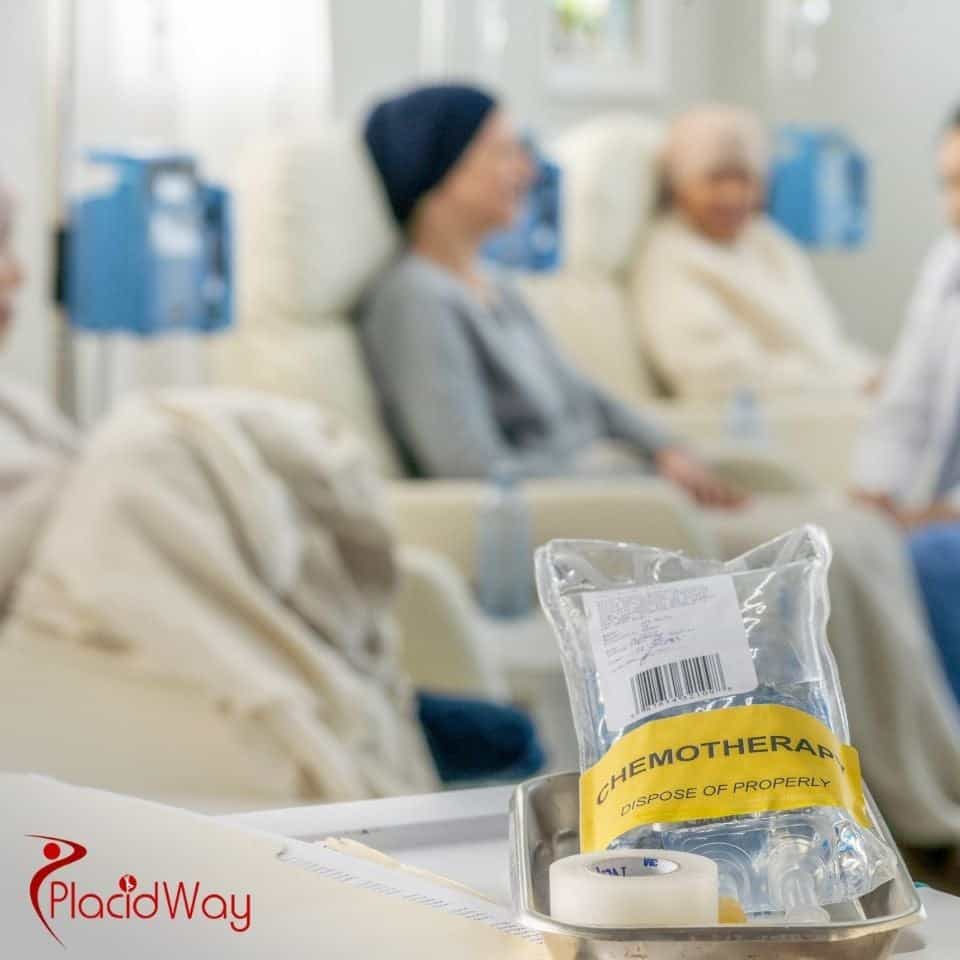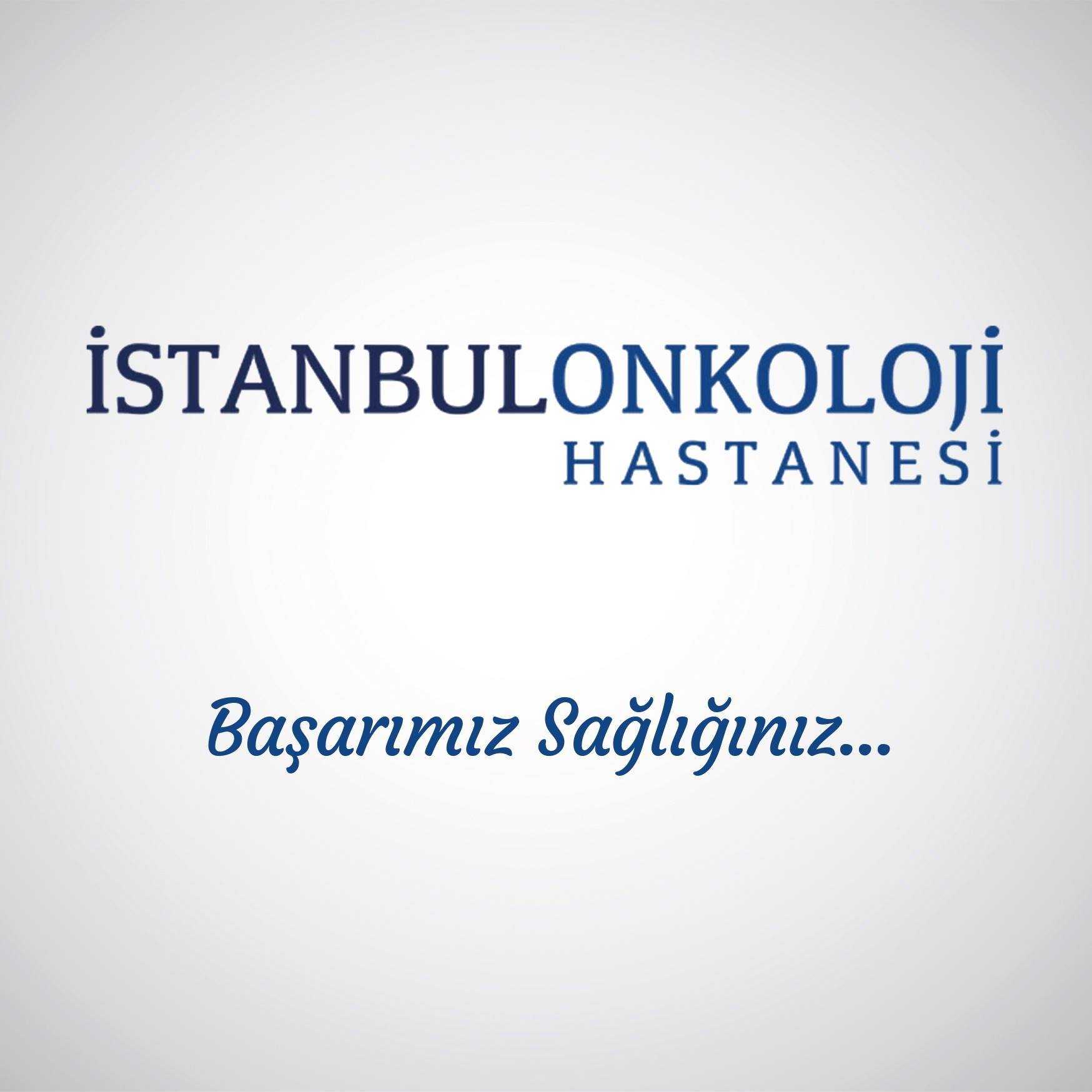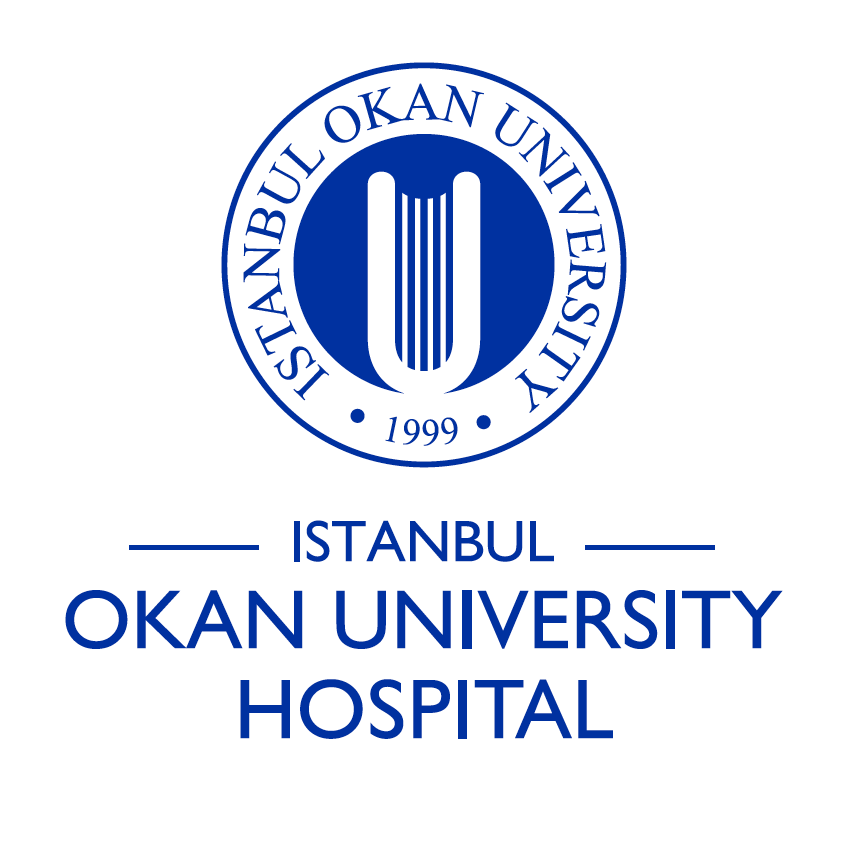Navigating Pancreatic Cancer Treatment in Turkey: From Diagnosis to Recovery
Turkey's healthcare system has made significant strides, particularly in oncology. Many hospitals are internationally accredited, ensuring high standards of care and patient safety. These facilities are equipped with the latest technologies for diagnosis and treatment, offering a comprehensive approach to managing pancreatic cancer. The focus is on providing personalized treatment plans, considering the unique aspects of each patient's condition, to achieve the best possible outcomes. From surgical interventions like the Whipple procedure to cutting-edge chemotherapy and radiation techniques, Turkey offers a broad spectrum of care.
What are the common treatment options for pancreatic cancer in Turkey?
Here are the main treatment modalities available in Turkey:
-
Surgery: This is often the most effective treatment for early-stage, localized pancreatic cancer.
-
Whipple Procedure (Pancreaticoduodenectomy): This complex surgery is performed when the tumor is in the head of the pancreas. It involves removing the head of the pancreas, part of the small intestine (duodenum), the gallbladder, and a portion of the bile duct. The remaining organs are then reconnected to allow digestion.
-
Distal Pancreatectomy: If the tumor is in the body or tail of the pancreas, this procedure involves removing those sections, often along with the spleen.
-
Total Pancreatectomy: In rare cases where the cancer has spread throughout the pancreas but is still resectable, the entire pancreas, gallbladder, spleen, and parts of the stomach and small intestine may be removed. This requires lifelong insulin and enzyme replacement.
-
-
Chemotherapy: This uses drugs to kill cancer cells throughout the body.
-
Neoadjuvant Chemotherapy: Administered before surgery to shrink the tumor, making it easier to remove, or to treat micro-metastases.
-
Adjuvant Chemotherapy: Given after surgery to destroy any remaining cancer cells and reduce the risk of recurrence.
-
Palliative Chemotherapy: Used for advanced or metastatic cancer to slow disease progression, manage symptoms, and improve quality of life. Common regimens include FOLFIRINOX (a combination of fluorouracil, leucovorin, irinotecan, and oxaliplatin) or Gemcitabine, sometimes combined with Nab-paclitaxel.
-
-
Radiation Therapy: High-energy X-rays are used to target and destroy cancer cells.
-
Often combined with chemotherapy (chemoradiation) to enhance effectiveness.
-
Can be used before surgery to shrink tumors, after surgery to eliminate residual cells, or as a primary treatment for patients who are not candidates for surgery.
-
Also used for palliative care to relieve pain by shrinking the tumor.
-
-
Targeted Therapy: These drugs specifically target molecules involved in cancer cell growth, minimizing damage to healthy cells. Examples include PARP inhibitors (like Olaparib) for certain pancreatic cancers with BRCA gene mutations, and other drugs like Erlotinib.
-
Immunotherapy: A newer approach that boosts the body's own immune system to recognize and fight cancer cells. While still an evolving field for pancreatic cancer, it shows promise, especially in clinical trials.
-
Palliative Care: For advanced cases where curative treatment is not possible, palliative care focuses on managing symptoms, such as pain relief (using medications or nerve blocks) and addressing issues like jaundice (by placing a biliary stent). Nutritional support is also crucial.
What is the cost of pancreatic cancer treatment in Turkey?
-
Type of Treatment: Surgical procedures like the Whipple procedure are generally more expensive than chemotherapy or radiation therapy alone.
-
Stage of Cancer: Earlier stages requiring less complex interventions might incur lower costs than advanced stages needing extensive multi-modal treatment.
-
Hospital and Specialist: Renowned hospitals and highly experienced surgeons may have higher fees.
-
Duration of Stay: Longer hospital stays or extended treatment protocols will naturally increase the overall cost.
-
Additional Services: This can include diagnostic tests, consultations, follow-up care, and accommodation.
Here's a general breakdown of approximate costs for different aspects of pancreatic cancer treatment:
It is important to note that these are estimated ranges, and a personalized quote from a specific clinic in Turkey will provide the most accurate figures. Many medical tourism facilitators can help patients obtain detailed cost breakdowns and all-inclusive packages.
How do doctors diagnose pancreatic cancer in Turkey?
The diagnostic process typically involves:
-
Physical Examination and Medical History: The doctor will ask about symptoms, medical history, and risk factors.
-
Blood Tests:
-
Tumor Markers: A common marker is CA 19-9, which can be elevated in pancreatic cancer. While not definitive on its own, it can aid in diagnosis and monitoring treatment effectiveness and recurrence.
-
Liver Function Tests: To check for bile duct obstruction.
-
-
Imaging Tests: These provide detailed images of the pancreas and surrounding organs.
-
Computed Tomography (CT) Scan: A detailed X-ray that creates cross-sectional images, helping to identify tumors and assess their spread.
-
Magnetic Resonance Imaging (MRI): Uses strong magnetic fields and radio waves to create detailed images, often preferred for soft tissues.
-
Positron Emission Tomography (PET) Scan: Uses a radioactive tracer to detect cancer cells and assess their metabolic activity.
-
Endoscopic Ultrasound (EUS): An endoscope with an ultrasound probe is passed down the throat into the stomach and small intestine, allowing for close-up images of the pancreas and nearby lymph nodes. This is often used to guide biopsies.
-
Endoscopic Retrograde Cholangiopancreatography (ERCP): A procedure combining endoscopy and X-rays to visualize and potentially clear blockages in the bile and pancreatic ducts.
-
-
Biopsy: This is the only definitive way to confirm pancreatic cancer. A small tissue sample is taken from the suspected tumor (often guided by EUS or CT) and examined under a microscope by a pathologist.
-
Laparoscopy (Staging Laparoscopy): In some cases, a minimally invasive surgical procedure is performed where a small incision is made in the abdomen, and a camera is inserted to visually inspect the abdominal cavity for cancer spread, helping determine if surgery is feasible.
What surgical procedures are performed for pancreatic cancer in Turkey?
The main surgical procedures include:
-
Whipple Procedure (Pancreaticoduodenectomy):
-
When performed: This is the most common surgery for tumors located in the head of the pancreas.
-
What it involves: Removal of the head of the pancreas, duodenum (first part of the small intestine), gallbladder, and a portion of the common bile duct. Nearby lymph nodes are also removed. The remaining pancreas, bile duct, and stomach are then reconnected to the small intestine.
-
Complexity: It is a highly complex and lengthy operation, requiring a skilled surgical team.
-
-
Distal Pancreatectomy:
-
When performed: For tumors located in the body or tail of the pancreas.
-
What it involves: Removal of the body and/or tail of the pancreas. The spleen is often removed as well, as it shares blood vessels with the tail of the pancreas.
-
Advantages: Less complex than a Whipple procedure, with potentially shorter recovery times.
-
-
Total Pancreatectomy:
-
When performed: In rare instances where the cancer has spread throughout the pancreas but can still be surgically removed.
-
What it involves: Removal of the entire pancreas, spleen, gallbladder, and portions of the stomach and small intestine.
-
Post-Surgery: Patients will require lifelong enzyme replacement therapy for digestion and insulin therapy to manage diabetes, as the pancreas produces both digestive enzymes and insulin.
-
-
Minimally Invasive Surgery:
-
Many Turkish hospitals offer laparoscopic and robotic-assisted surgery for pancreatic resections, especially for distal pancreatectomies.
-
Benefits: Smaller incisions, reduced blood loss, less pain, shorter hospital stays, and faster recovery compared to open surgery.
-
Precision: Robotic systems provide surgeons with enhanced precision, visualization, and dexterity, which can be beneficial in complex cases, especially for meticulous lymph node dissection.
-
The decision for surgical intervention is made by a multidisciplinary team after thorough evaluation, considering the tumor's resectability and the patient's overall health.
What are the latest advancements in pancreatic cancer treatment available in Turkey?
Key advancements include:
-
Neoadjuvant Therapy Optimization:
-
There's a growing trend towards using intensive chemotherapy and/or radiation therapy (neoadjuvant treatment) before surgery, even for "borderline resectable" or "locally advanced" tumors.
-
This approach aims to shrink the tumor, make it more amenable to surgical removal, and treat any microscopic spread, potentially converting previously inoperable cases into operable ones. Regimens like FOLFIRINOX are increasingly used in this context.
-
-
Precision Medicine and Targeted Therapies:
-
Understanding the genetic and molecular characteristics of an individual's pancreatic cancer is becoming increasingly important.
-
Molecular profiling of tumors helps identify specific genetic mutations (e.g., BRCA mutations, KRAS mutations).
-
Targeted therapies, such as PARP inhibitors (e.g., Olaparib), are then used to specifically attack cancer cells with these mutations, sparing healthy cells. This personalized approach leads to more effective and less toxic treatments.
-
-
Immunotherapy:
-
While not yet a first-line treatment for most pancreatic cancers, immunotherapy is a promising area of research and is being explored in clinical trials in Turkey.
-
These therapies harness the body's own immune system to recognize and destroy cancer cells. For some patients, particularly those with specific genetic markers, immunotherapy may offer significant benefits.
-
-
Advanced Surgical Techniques:
-
The widespread adoption of minimally invasive surgery (laparoscopic and robotic-assisted pancreatectomy) has revolutionized recovery for suitable patients.
-
These techniques offer significant advantages, including smaller incisions, reduced pain, less blood loss, and faster recovery times.
-
-
Improved Supportive and Palliative Care:
-
Comprehensive palliative care teams work alongside oncologists to manage symptoms (like pain, nausea, and weight loss) and improve the overall quality of life for patients at all stages of the disease.
-
Advanced pain management techniques, nutritional support, and psychological counseling are integral parts of the treatment journey.
-
-
Clinical Trials:
-
Many leading hospitals in Turkey participate in clinical trials, offering patients access to experimental treatments and novel therapies that are not yet widely available.
-
What are the success rates for pancreatic cancer treatment in Turkey?
Key factors influencing success rates:
-
Stage of Diagnosis:
-
Early Stage (Resectable): If the cancer is detected early and is confined to the pancreas (resectable), surgery offers the best chance for long-term survival. Success rates for surgical removal of the tumor can be high, with some sources indicating an efficacy rate of around 80% for the surgery itself in early-stage patients. Five-year survival rates for resectable pancreatic cancer have also seen improvements, especially when surgery is followed by adjuvant chemotherapy.
-
Borderline Resectable/Locally Advanced: For these cases, neoadjuvant therapy (chemotherapy and/or radiation before surgery) plays a crucial role. This can make a previously inoperable tumor resectable, improving the chances of successful surgical removal and overall survival.
-
Metastatic: When the cancer has spread to distant organs, the treatment focus shifts to palliative care, managing symptoms, and prolonging life using chemotherapy, targeted therapy, or immunotherapy. While curative rates are low for metastatic disease, these treatments can significantly improve quality of life and extend survival.
-
-
Multidisciplinary Approach: Turkish hospitals emphasize a team-based approach, involving surgical oncologists, medical oncologists, radiation oncologists, gastroenterologists, and palliative care specialists. This integrated care often leads to better outcomes as treatment plans are meticulously designed and adjusted.
-
Advanced Technology and Expertise: Access to advanced diagnostic tools and sophisticated surgical techniques (including robotic surgery) and modern chemotherapy and radiation protocols contribute to higher success rates.
-
Individual Patient Factors: Age, overall health, co-existing medical conditions, and response to treatment all play a role in the individual patient's prognosis.
While specific country-wide survival statistics can be hard to generalize due to varying patient populations and reporting methods, Turkish clinics adhering to international standards report outcomes comparable to top centers globally, especially for patients with resectable disease. Some studies suggest that the survival rate for patients undergoing pancreatic cancer treatment in Turkey has significantly improved in recent years, with a reported average survival of 18 months in advanced stages, compared to a global average of 12 months in some contexts.
What are the potential risks and side effects of pancreatic cancer treatment?
Surgical Risks (e.g., Whipple Procedure, Distal Pancreatectomy):
-
Bleeding: Risk of significant blood loss during or after surgery, potentially requiring transfusions.
-
Infection: Risk of infection at the surgical site or within the abdomen.
-
Pancreatic Fistula: Leakage of pancreatic fluid from the surgical connections, which can be a serious complication. This is a common and often anticipated complication, and managing it is a key part of post-operative care.
-
Delayed Gastric Emptying: The stomach may take longer to empty after surgery, leading to nausea and vomiting.
-
Diabetes: If a significant portion or all of the pancreas is removed, the body may no longer produce enough insulin, leading to diabetes. This requires lifelong insulin therapy.
-
Malabsorption/Nutritional Deficiencies: Removal of parts of the pancreas or small intestine can impair digestion and absorption of nutrients, requiring lifelong enzyme replacement therapy and dietary adjustments.
-
Anastomotic Leak: Leakage from the connections made between organs during surgery.
Chemotherapy Side Effects:
-
Fatigue: Common and can be severe.
-
Nausea and Vomiting: Often managed with anti-nausea medications.
-
Hair Loss: Some chemotherapy drugs cause temporary hair loss.
-
Bone Marrow Suppression: Leading to a decrease in white blood cells (increased infection risk), red blood cells (anemia, fatigue), and platelets (increased bleeding risk).
-
Neuropathy: Numbness, tingling, or pain in hands and feet.
-
Diarrhea or Constipation: Digestive disturbances are common.
-
Mouth Sores: Inflammation and sores in the mouth.
Radiation Therapy Side Effects:
-
Skin Changes: Redness, dryness, itching, or peeling in the treated area.
-
Fatigue: Often occurs during and after treatment.
-
Digestive Issues: Nausea, vomiting, diarrhea, or abdominal discomfort, especially if the stomach or intestines are in the radiation field.
-
Loss of Appetite: Can contribute to weight loss.
Targeted Therapy and Immunotherapy Side Effects:
-
Targeted therapies can have specific side effects depending on the drug and its mechanism of action, often related to skin rashes, fatigue, or liver problems.
-
Immunotherapy can cause immune-related adverse events, where the boosted immune system attacks healthy tissues, leading to inflammation in various organs (e.g., colitis, hepatitis, skin rashes).
The medical teams in Turkey are well-versed in managing these side effects through supportive care, medications, and close monitoring to ensure the patient's comfort and well-being throughout the pancreatic cancer treatment journey.
What is the typical recovery period after pancreatic cancer surgery in Turkey?
Here's a general timeline for recovery:
-
Hospital Stay (1-3 weeks):
-
Immediately after surgery, patients are closely monitored in the intensive care unit (ICU) or a high-dependency unit for a few days.
-
Pain management is a priority, and medications are administered to keep discomfort under control.
-
Patients will have various tubes for drainage, feeding, and monitoring. These are gradually removed as recovery progresses.
-
Early mobilization (getting out of bed and walking a bit) is encouraged to prevent complications like blood clots and pneumonia.
-
Diet is gradually advanced from clear liquids to soft foods as the digestive system recovers.
-
-
Initial Home Recovery (2-4 weeks post-discharge):
-
Patients will still experience fatigue and some discomfort.
-
Strenuous activities, heavy lifting, and driving are typically restricted.
-
Follow-up appointments with the surgeon and oncologist are crucial to monitor healing and discuss adjuvant therapy (chemotherapy or radiation).
-
Patients may need to continue taking pancreatic enzyme supplements and manage blood sugar levels if diabetes develops.
-
-
Gradual Return to Normal Activities (Weeks 5-8 onwards):
-
Most individuals can gradually return to light work or daily routines by the fifth week.
-
More strenuous physical activities and sports can often be resumed around the sixth week, depending on individual recovery.
-
Full recovery and feeling back to normal can take several months (typically 3-6 months), as the body continues to heal and adjust to the changes.
-
-
Long-Term Management:
-
Lifelong monitoring for recurrence of cancer is essential, involving regular scans and blood tests.
-
Nutritional support, including pancreatic enzyme replacement therapy, is often a long-term requirement to aid digestion and prevent malnutrition.
-
If diabetes develops, careful management of blood sugar levels with insulin will be necessary.
-
Psychological support and counseling can also be beneficial throughout the recovery process.
-
Turkish medical teams provide detailed instructions for home care, including wound care, dietary guidelines, medication schedules, and signs of potential complications, ensuring patients are well-prepared for their recovery journey.
Which hospitals in Turkey specialize in pancreatic cancer treatment?
Here are some of the leading hospitals known for their expertise in pancreatic cancer care:
-
Florence Nightingale Hospital (Istanbul):
-
Renowned for its oncology department and advanced surgical capabilities, including robotic-assisted surgeries for pancreatic cancer.
-
Known for a multidisciplinary approach, with expert surgical teams, oncologists, and gastroenterologists.
-
-
Medicana International Istanbul Hospital (Istanbul):
-
One of Turkey's most advanced hospitals for oncology and cancer treatment.
-
Equipped with modern diagnostic tools like PET-CT and endoscopic ultrasound (EUS) and offering comprehensive treatment programs including chemotherapy, targeted therapy, and minimally invasive surgery.
-
-
Memorial ?i?li Hospital (Istanbul):
-
Accredited by JCI (Joint Commission International), known for high standards in oncology and cancer care.
-
Specializes in pancreatic cancer through innovative surgical techniques and precision oncology treatments, including the Whipple procedure and HIPEC (hyperthermic intraperitoneal chemotherapy) for certain cases.
-
-
Liv Hospital (Istanbul):
-
Recognized for its advanced technology and patient-centered approach in oncology.
-
Offers a full spectrum of pancreatic cancer treatment options, from complex surgeries to advanced medical oncology.
-
-
Anadolu Medical Center (Istanbul):
-
Affiliated with Johns Hopkins Medicine, providing American treatment standards.
-
A multidisciplinary facility with strong departments in oncology, surgical oncology, and radiation oncology, making it a leading choice for pancreatic cancer patients.
-
-
Ac?badem Healthcare Group (Various cities, including Istanbul):
-
A large and prestigious healthcare group with multiple hospitals equipped with advanced technology for cancer diagnosis and treatment.
-
Known for their comprehensive cancer programs and experienced specialists.
-
When choosing a hospital, it's advisable to consider factors like:
-
International Accreditations: Look for hospitals accredited by organizations like JCI, which signifies adherence to global quality and safety standards.
-
Specialist Expertise: Ensure the hospital has a dedicated team of experienced pancreatic surgeons, medical oncologists, and radiation oncologists.
-
Technology and Facilities: Check for access to advanced diagnostic imaging, surgical equipment (e.g., robotic surgery), and modern chemotherapy/radiation units.
-
Patient Reviews and Outcomes: Research patient testimonials and inquire about the hospital's success rates for pancreatic cancer specific to your stage.
How does the quality of pancreatic cancer treatment in Turkey compare to Western countries?
Here's why the quality is considered high:
-
International Accreditations: A large number of leading hospitals in Turkey are accredited by international organizations, such as the Joint Commission International (JCI). JCI accreditation signifies that a healthcare organization meets rigorous international standards for patient safety and quality of care. This is a strong indicator of quality comparable to top hospitals worldwide.
-
State-of-the-Art Technology: Turkish medical centers are equipped with the latest diagnostic and treatment technologies, including advanced imaging (PET-CT, 3T MRI), robotic surgical systems (like da Vinci), and sophisticated radiation therapy machines (CyberKnife, TrueBeam). This ensures that patients receive the most current and effective treatments available globally.
-
Highly Qualified Medical Professionals: Many Turkish oncologists, surgeons, and other specialists have received training and education from prestigious institutions in Europe and the United States. They are often members of international medical associations, ensuring they stay updated on the latest research and best practices in pancreatic cancer treatment.
-
Multidisciplinary Approach: Turkish hospitals widely adopt a multidisciplinary team approach for cancer care. This means that a patient's case is reviewed by a team of experts (surgeons, medical oncologists, radiation oncologists, radiologists, pathologists, palliative care specialists), ensuring a comprehensive and tailored treatment plan, similar to practices in leading Western cancer centers.
-
Focus on Patient Experience: Many hospitals catering to international patients offer services like language interpretation, dedicated patient coordinators, and assistance with travel and accommodation, making the entire medical journey smoother and more patient-friendly.
-
Research and Clinical Trials: Several Turkish institutions are actively involved in medical research and participate in international clinical trials, offering patients access to innovative and emerging therapies for pancreatic cancer.
While the cost of treatment in Turkey is generally lower, this affordability does not come at the expense of quality. The lower costs are often attributed to lower operational expenses and a more favorable exchange rate, making Turkey an attractive option for high-quality, specialized medical procedures.
Is a second opinion for pancreatic cancer treatment available in Turkey?
Here’s how you can typically get a second opinion in Turkey:
-
Online Consultations: Many leading Turkish hospitals and medical tourism facilitators offer virtual consultations. You can send your existing medical records, imaging scans (CT, MRI, PET), biopsy reports, and current treatment plans to a specialized oncology team in Turkey. They will review your case and provide a detailed second opinion, often including a recommended pancreatic cancer treatment strategy.
-
Multidisciplinary Tumor Boards: Top hospitals in Turkey have regular "tumor board" meetings. During these meetings, a patient's case is presented and discussed by a team of diverse specialists—surgical oncologists, medical oncologists, radiation oncologists, radiologists, and pathologists. This collaborative approach ensures that all aspects of the diagnosis and potential treatments are considered, leading to a comprehensive and well-rounded second opinion.
-
Direct Consultations: You can also arrange an in-person consultation with a leading oncologist or surgical specialist in Turkey. This allows for a direct examination and discussion of your case.
-
Medical Tourism Facilitators: Companies specializing in medical tourism often assist with coordinating second opinions. They can help with translation of medical documents, scheduling appointments, and facilitating communication with Turkish medical professionals.
Benefits of a Second Opinion:
-
Confirmation of Diagnosis and Staging: Ensures accuracy and avoids misdiagnosis.
-
Exploration of Alternative Treatments: You might discover treatment options or clinical trials not available or commonly practiced in your home country.
-
Peace of Mind: Provides confidence in your chosen pancreatic cancer treatment plan.
-
Cost Comparison: Offers an opportunity to compare treatment costs and potentially find more affordable high-quality care.
It is advisable to have all your medical records translated into English before sending them for review, although many Turkish hospitals have dedicated international patient departments with English-speaking staff and translators.
What role does palliative care play in pancreatic cancer treatment in Turkey?
The role of palliative care includes:
-
Symptom Management: Pancreatic cancer can cause various challenging symptoms. Palliative care teams specialize in managing:
-
Pain: Utilizing medications, nerve blocks, or radiation therapy to shrink tumors pressing on nerves.
-
Nausea and Vomiting: Through anti-emetic medications and dietary adjustments.
-
Weight Loss and Malnutrition: Providing nutritional counseling, enzyme replacement therapy, and sometimes even feeding tubes.
-
Jaundice: Often managed by placing a stent in the bile duct to relieve blockages.
-
Fatigue: Addressing underlying causes and recommending strategies to conserve energy.
-
-
Emotional and Psychological Support: A cancer diagnosis, especially an aggressive one like pancreatic cancer, can be emotionally taxing. Palliative care teams offer:
-
Counseling for patients and families.
-
Support groups.
-
Strategies to cope with anxiety, depression, and fear.
-
-
Spiritual Support: Addressing spiritual concerns and providing resources as needed.
-
Communication and Shared Decision-Making: Facilitating open and honest conversations about prognosis, treatment goals, and end-of-life care preferences. Palliative care teams help patients and families make informed decisions that align with their values.
-
Coordination of Care: Working closely with oncologists, surgeons, and other specialists to ensure seamless and holistic care throughout the pancreatic cancer treatment journey.
-
Family Support: Offering support to family members and caregivers, who also face significant challenges.
In Turkey, leading cancer centers understand that effective pancreatic cancer treatment extends beyond just targeting the tumor. Comprehensive palliative care aims to provide comfort, dignity, and the best possible quality of life at every stage of the disease, whether alongside curative treatments or as the primary focus in advanced cases.
Are clinical trials for pancreatic cancer available in Turkey?
What are Clinical Trials? Clinical trials are research studies conducted with human volunteers to evaluate new medical approaches, drugs, devices, or other interventions as a means to prevent, detect, treat, or manage diseases. For pancreatic cancer, clinical trials might involve:
-
New chemotherapy drugs or combinations.
-
Novel targeted therapies.
-
Emerging immunotherapies.
-
New radiation techniques.
-
Improved surgical approaches.
-
Combination therapies.
Availability in Turkey: Leading medical universities and large hospital groups in cities like Istanbul and Ankara are often involved in national and international clinical trials. These hospitals have the necessary infrastructure, research capabilities, and ethical review boards to conduct such studies.
How to Access Clinical Trials:
-
Consult with Your Oncologist: The first step is always to discuss the possibility of joining a clinical trial with your oncology team in Turkey. They can assess if you meet the eligibility criteria for any ongoing trials.
-
Hospital Websites and Research Departments: Check the websites of major hospitals (e.g., those affiliated with universities or large private groups) for their clinical trials sections.
-
Medical Tourism Facilitators: Some facilitators may have information on active clinical trials and can help connect you with relevant institutions.
Benefits of Participating in a Clinical Trial:
-
Access to Cutting-Edge Treatments: You might receive therapies that are not yet widely available.
-
Close Monitoring: Participants in clinical trials often receive very close medical attention and monitoring.
-
Contributing to Medical Science: Your participation helps advance the understanding and treatment of pancreatic cancer for future patients.
It's important to remember that clinical trials carry inherent risks, and their success is not guaranteed. Patients should thoroughly understand the trial's objectives, potential benefits, and risks before deciding to participate. Ethical guidelines and patient safety are paramount in all clinical trials conducted in Turkey.
How do I choose the best pancreatic cancer specialist in Turkey?
Here are key factors to consider when choosing a pancreatic cancer specialist in Turkey:
-
Board Certification and Qualifications:
-
Ensure the specialist (whether a surgical oncologist, medical oncologist, or radiation oncologist) is board-certified in their respective field.
-
Look into their educational background, especially if they have trained at internationally recognized institutions.
-
-
Experience in Pancreatic Cancer:
-
Experience matters significantly for complex diseases like pancreatic cancer. Inquire about the number of Whipple procedures or other pancreatic surgeries the surgeon performs annually.
-
For oncologists, ask about their experience with various chemotherapy, targeted therapy, and immunotherapy regimens specifically for pancreatic cancer.
-
-
Multidisciplinary Team Affiliation:
-
The best specialists usually work within a multidisciplinary team. This means your case will be discussed and managed collaboratively by a group of experts, ensuring all aspects of your pancreatic cancer treatment are covered.
-
Confirm that the specialist practices in a hospital with a dedicated cancer center and regular tumor board meetings.
-
-
Hospital Affiliation and Technology:
-
A top specialist will typically be affiliated with a leading hospital that possesses state-of-the-art diagnostic and treatment technology. This ensures they have the resources needed for optimal care.
-
-
Patient Reviews and Testimonials:
-
Online reviews, testimonials, and patient success stories can offer insights into a doctor's approach, communication style, and patient outcomes. While subjective, they can provide a general sense of satisfaction.
-
-
Communication and Language:
-
For international patients, it's crucial that the specialist or their team can communicate effectively in English, or that reliable interpretation services are available to ensure clear understanding of your diagnosis, treatment plan, and potential risks.
-
-
Professional Memberships and Research:
-
Membership in international professional organizations (e.g., European Society for Medical Oncology, American Society of Clinical Oncology) indicates commitment to global standards and ongoing learning.
-
Involvement in research or clinical trials suggests they are at the forefront of new developments in pancreatic cancer treatment.
-
-
Second Opinion:
-
Don't hesitate to seek a second opinion. A good specialist will understand and even encourage this, providing confidence in your treatment choice.
-
You can often find information on specialists through medical tourism agencies, hospital websites, and online healthcare directories that list doctor profiles in Turkey.
Are there specific dietary recommendations for pancreatic cancer patients in Turkey?
Here are common dietary recommendations for pancreatic cancer patients:
-
Pancreatic Enzyme Replacement Therapy (PERT):
-
This is often the most critical recommendation, especially after pancreatic surgery (like the Whipple procedure) or if the pancreas is not producing enough digestive enzymes.
-
Enzyme supplements are taken with meals and snacks to help digest fats, proteins, and carbohydrates, improving nutrient absorption and reducing symptoms like bloating, gas, and diarrhea.
-
-
Small, Frequent Meals:
-
Instead of three large meals, patients are usually advised to eat 5-6 smaller meals throughout the day. This is easier on the digestive system and helps maintain energy levels.
-
-
Low-Fat Diet:
-
Since fat digestion is often impaired, a diet lower in fat can reduce digestive discomfort. Patients are guided on healthy fat sources that are easier to digest.
-
-
Adequate Protein Intake:
-
Protein is essential for healing, muscle mass preservation, and overall strength. Lean protein sources like chicken, fish, eggs, and legumes are encouraged.
-
-
Hydration:
-
Drinking plenty of fluids throughout the day is important to prevent dehydration, especially if experiencing diarrhea or vomiting from chemotherapy or digestive issues.
-
-
Managing Blood Sugar:
-
If surgery affects insulin production, leading to diabetes, a specialized diabetic diet and careful monitoring of blood sugar levels are necessary.
-
-
Nutrient-Dense Foods:
-
Focus on foods that provide a high amount of nutrients for their calorie count.
-
Foods rich in vitamins and minerals are important for supporting the immune system and overall health.
-
-
Avoiding Irritants:
-
Patients might be advised to avoid foods that trigger discomfort, such as very spicy, acidic, or overly sugary foods, depending on individual tolerance.
-
-
Fiber Intake (Controlled):
-
While fiber is generally healthy, excessive amounts can sometimes cause discomfort. A balanced approach tailored to the patient's digestive tolerance is recommended.
-
Turkish hospitals with dedicated oncology departments typically have nutritionists or dietitians who work closely with the medical team to create personalized dietary plans for pancreatic cancer patients, addressing their specific needs and symptoms. This support is crucial for managing symptoms, preventing malnutrition, and supporting overall recovery and well-being during pancreatic cancer treatment.
Explore PlacidWay for comprehensive solutions related to medical tourism and healthcare services. We can connect you with leading hospitals and specialists for your pancreatic cancer treatment journey.



.png)

.png)


.png)
.png)








Share this listing